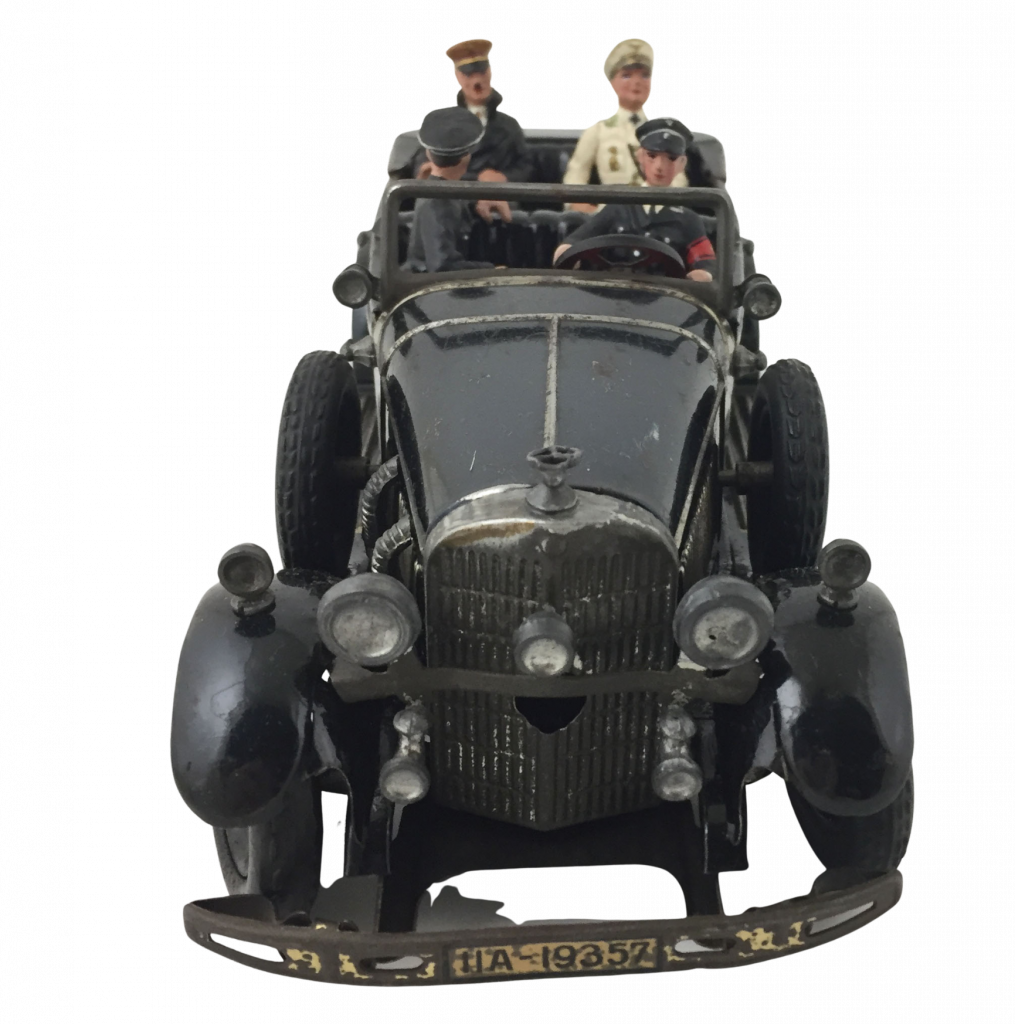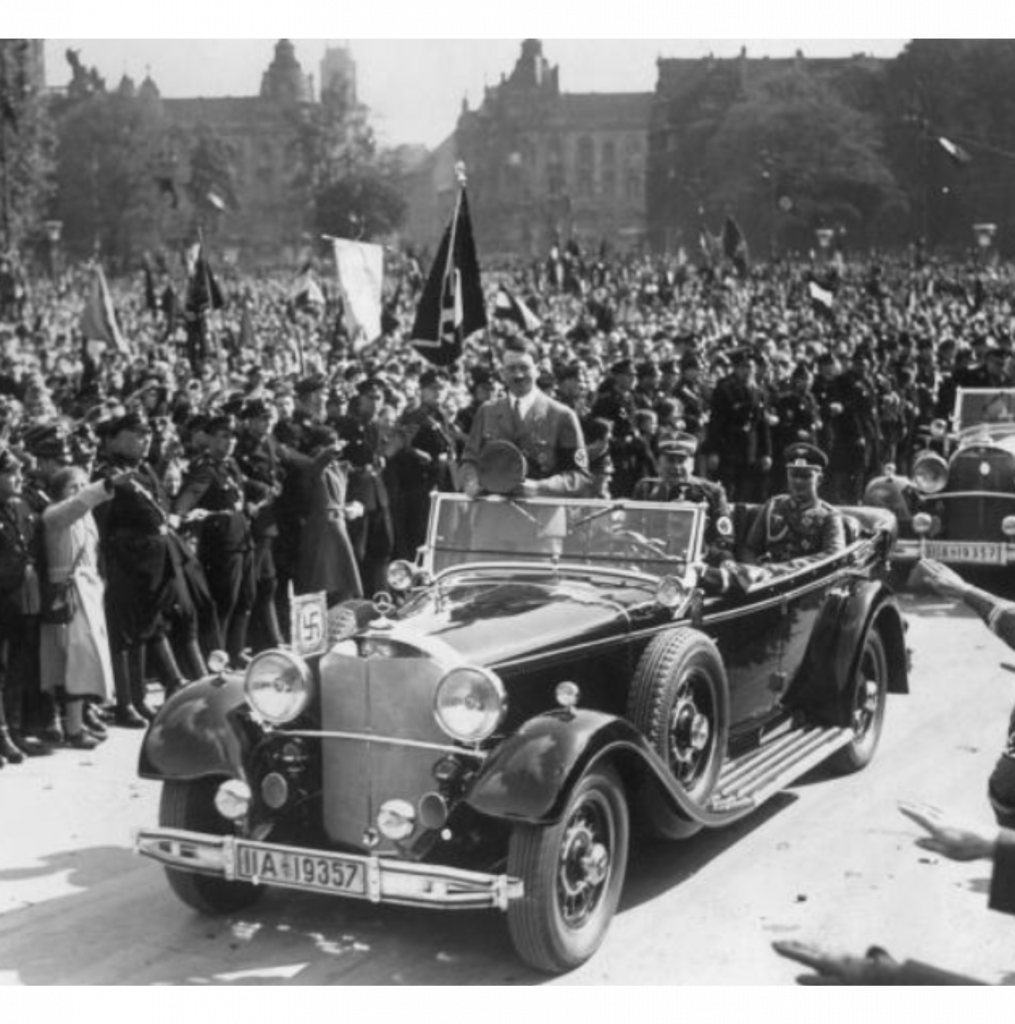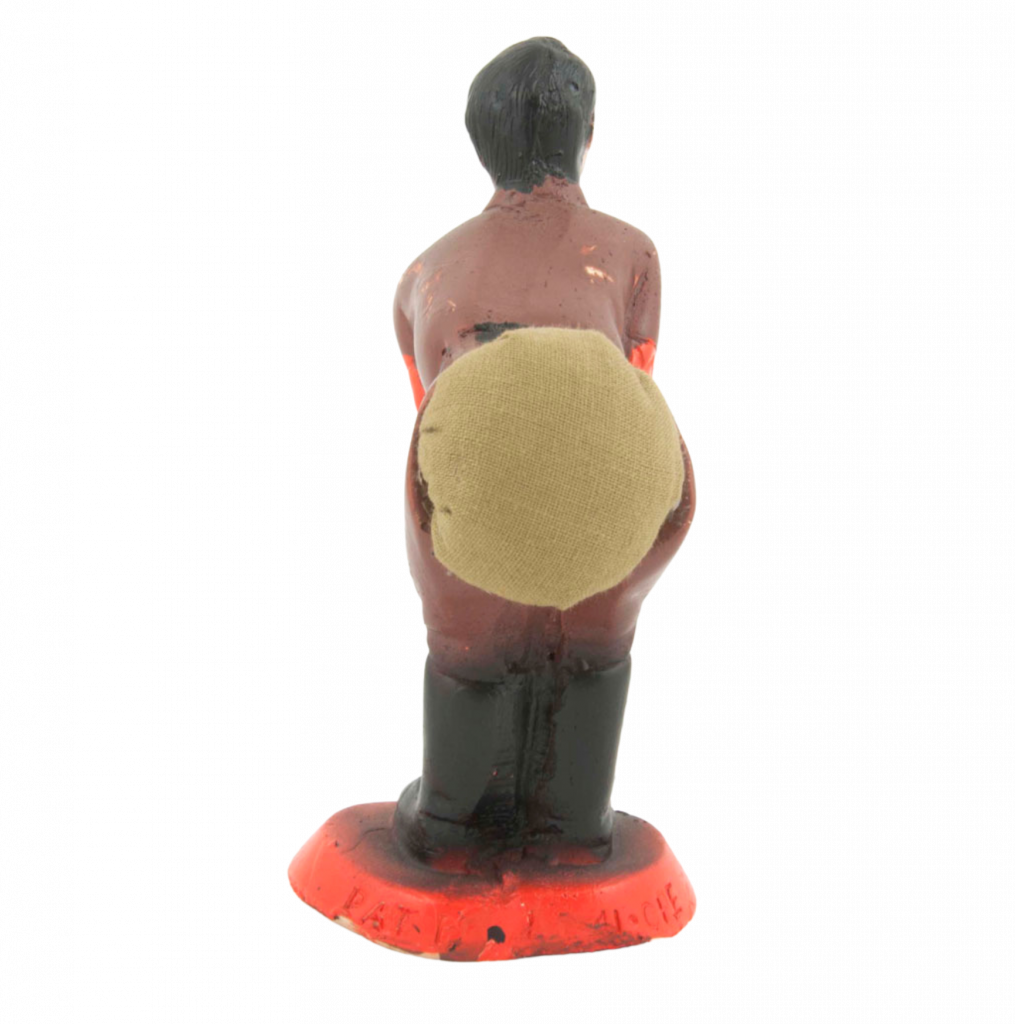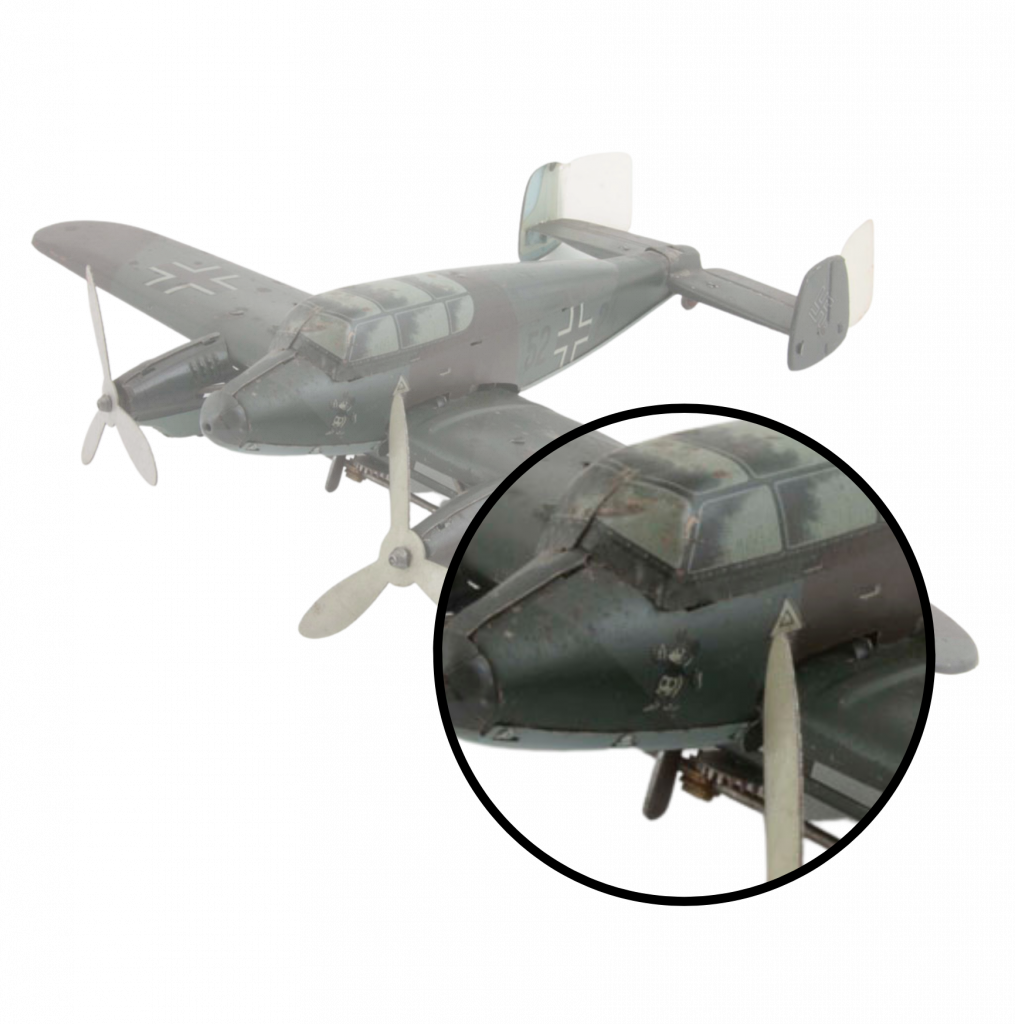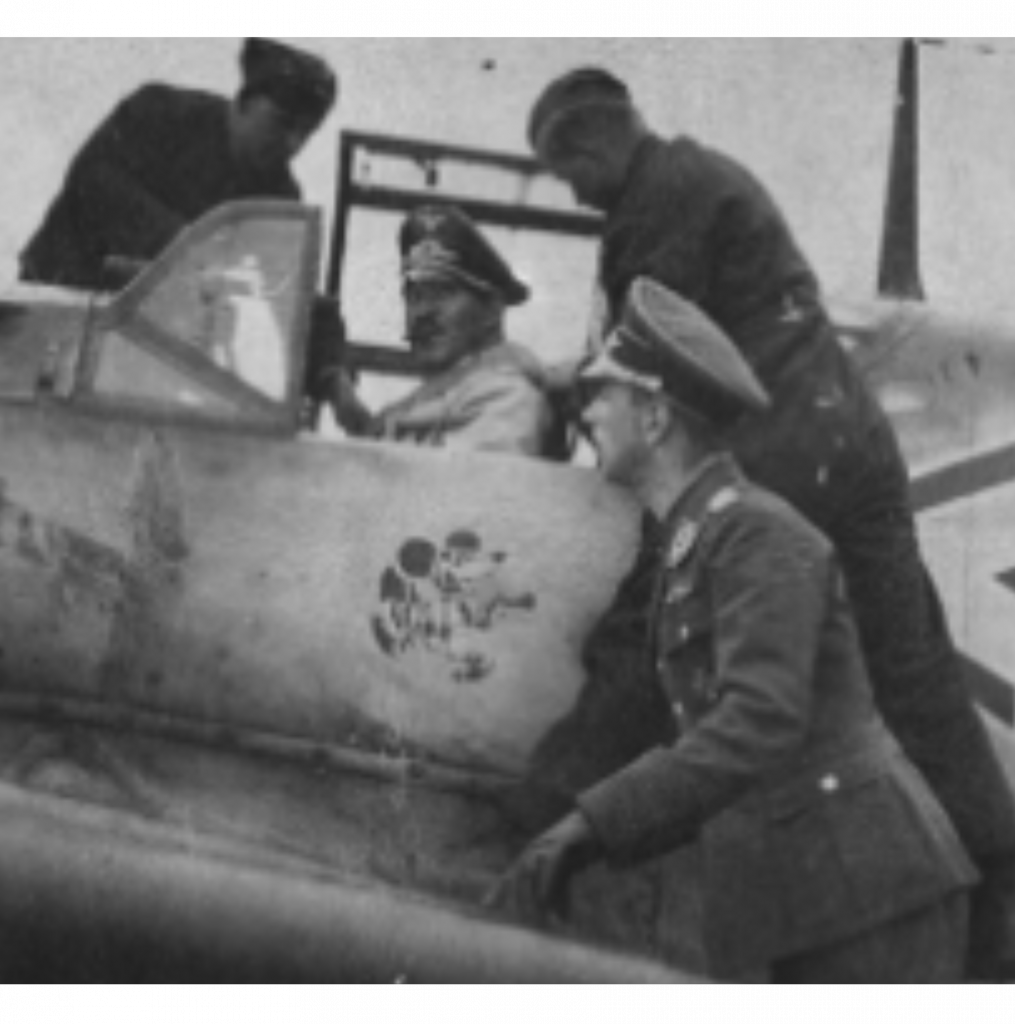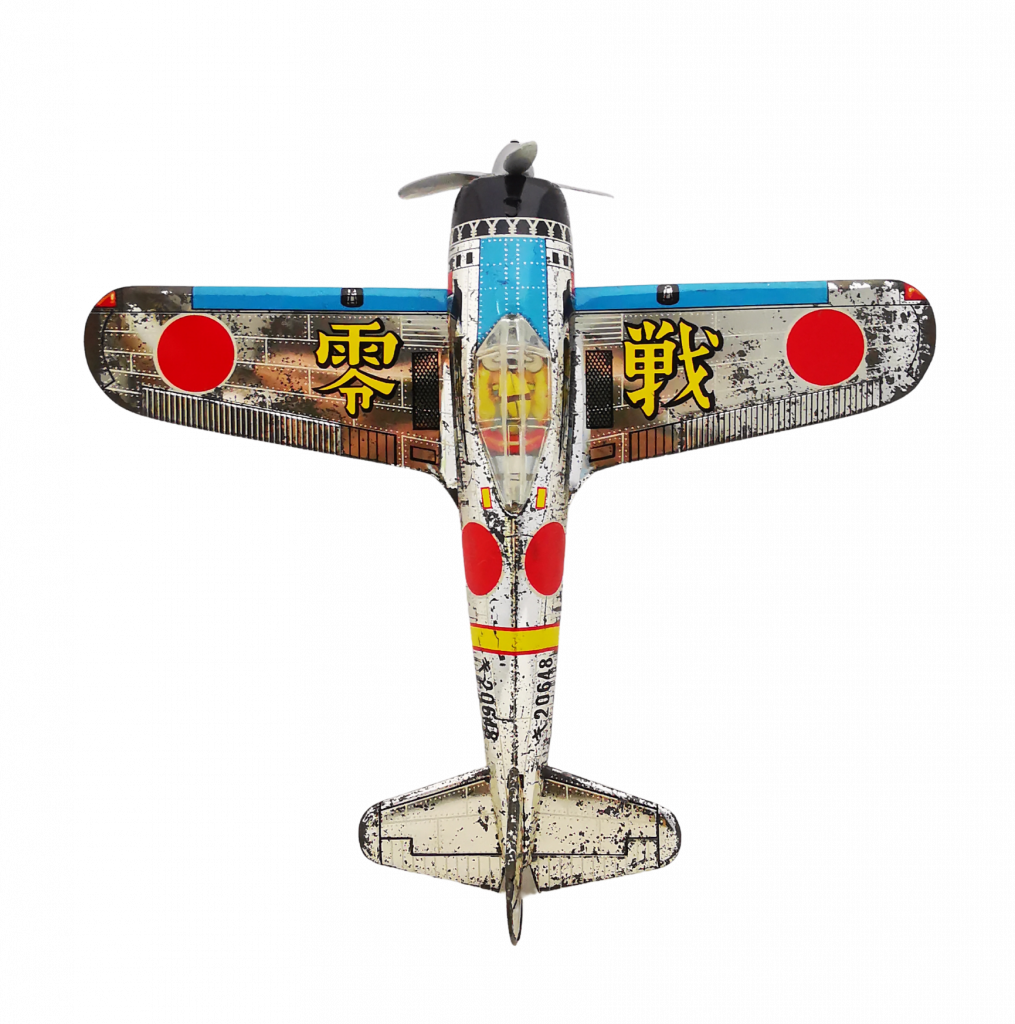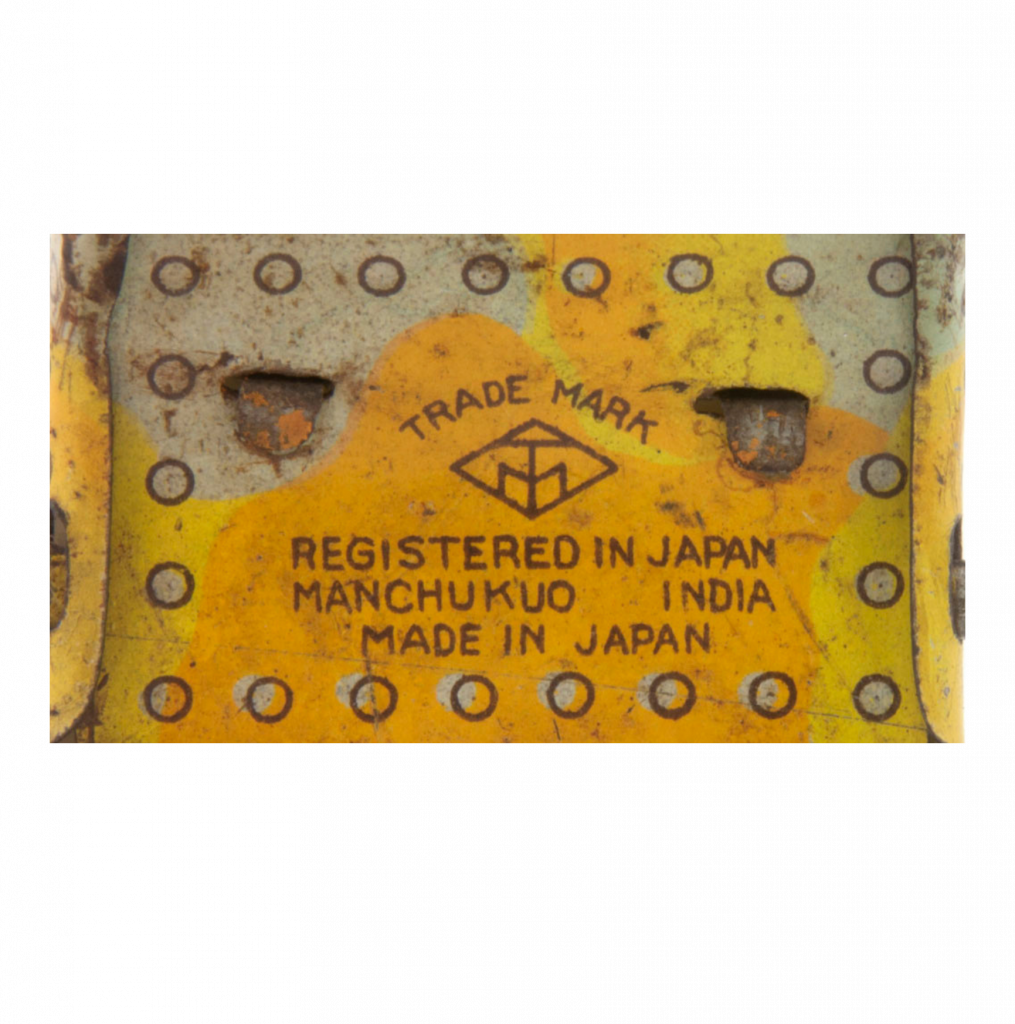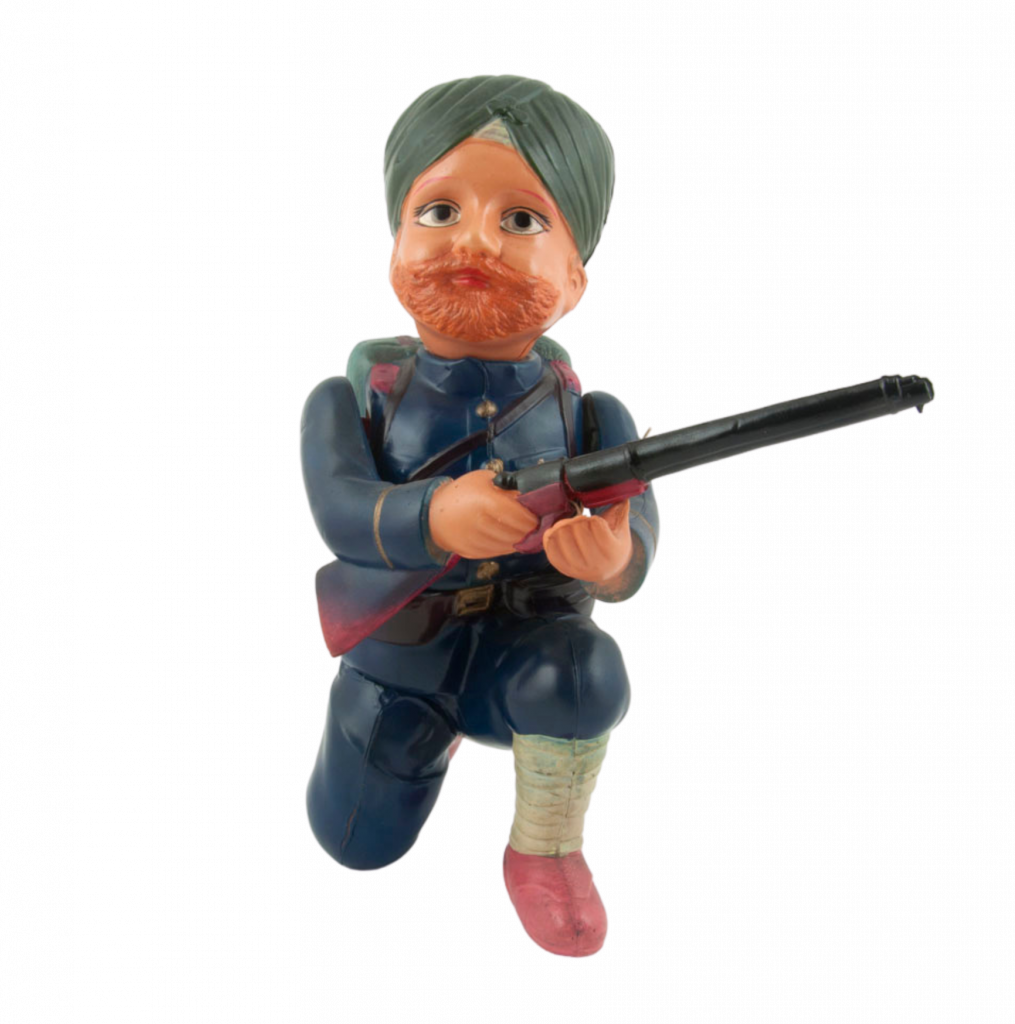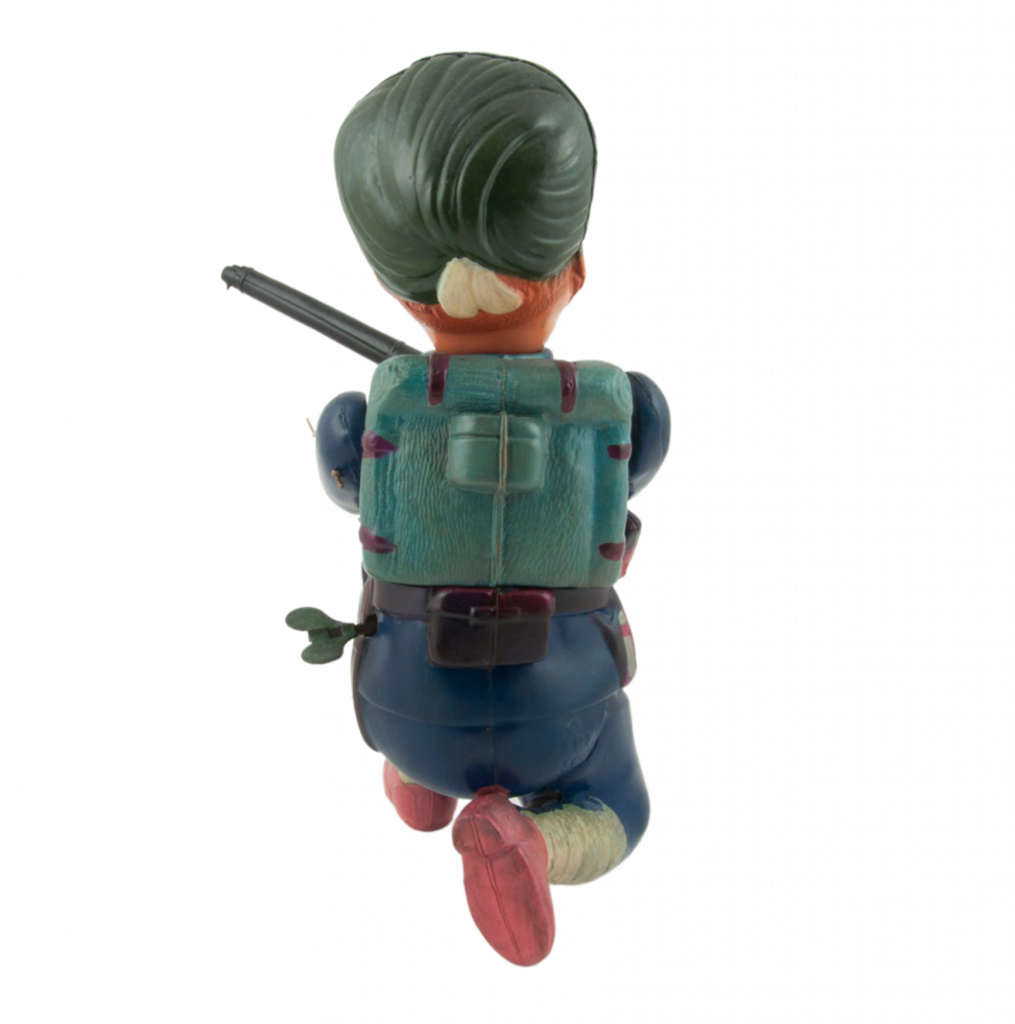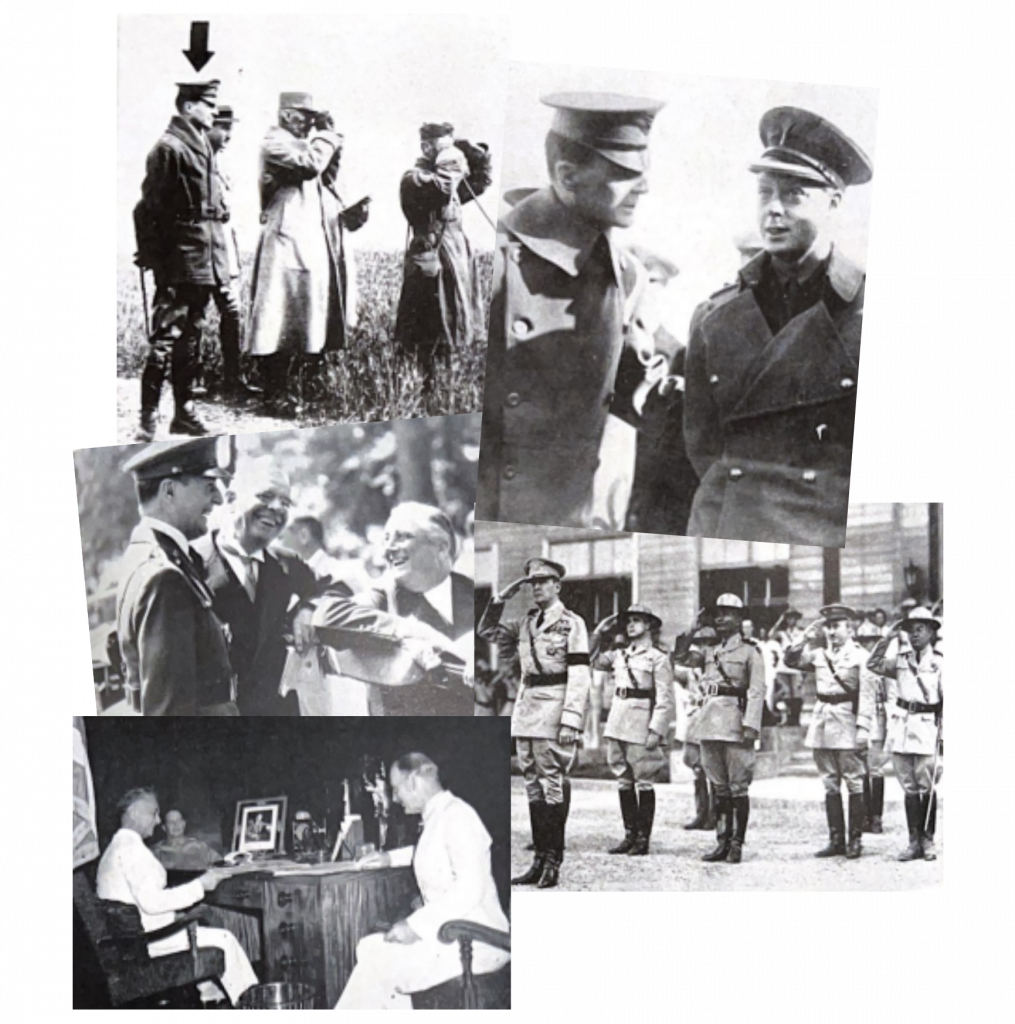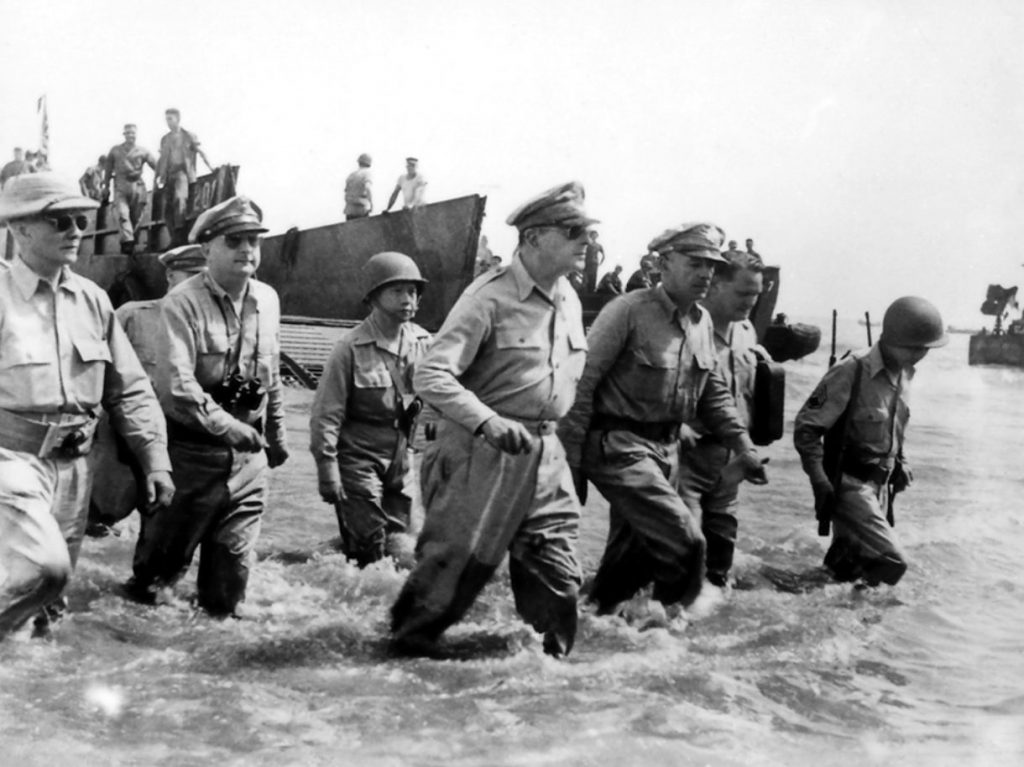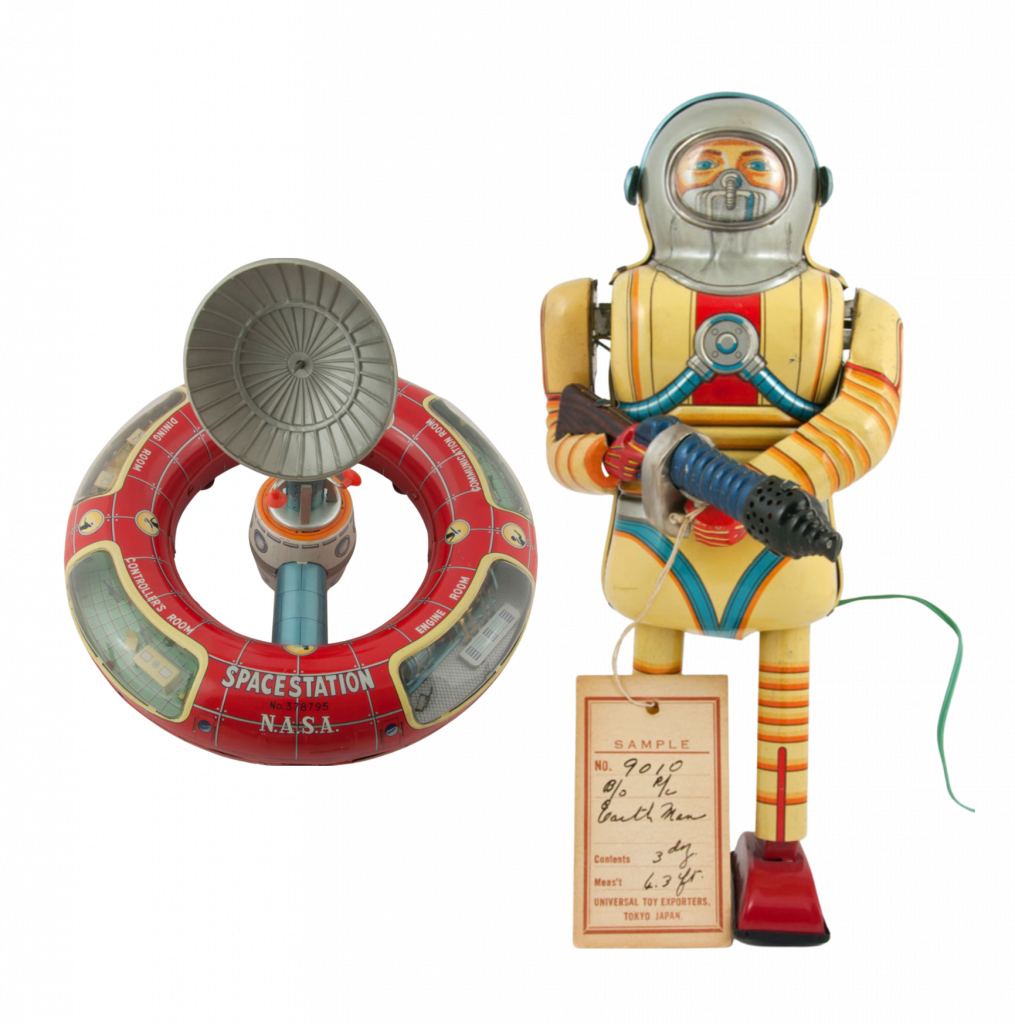A Special Programme
Commemorating
the Anniversary of
the Fall of Singapore on
15th February 1942
The MINT Museum of Toys curated a special guided tour programme for the Battle for Singapore initiative 2023. The tour ‘Second World War Vintage Toy Collection Guided Tour with Special Feature on General MacArthur’ is available between 10 February 2023 to 5 March 2023.
An initiative organised by the National Heritage Board under:

PROGRAMME SUMMARY
What role did toys play during the Second World War?
Through an exploration of vintage toys produced in the countries of both the Allied Forces (Britain, France, USSR & USA etc) and the Axis Powers (Germany, Italy, and Japan etc), this guided tour examines how toys were used to normalise war, encourage support for ongoing war efforts and to celebrate war achievements of nations and individuals.
Besides the iconic figure of General MacArthur (widely revered by the Americans in particular), the museum’s Second World War collection also contains Shingun soldier figurines reminding us of the rank and file such as the Sikh soldiers who fought in the Battle for Singapore.
Join the docents of MINT Museum of Toys as they explore how toys contribute to the remembrance and myths of war heroism.
KEY TAKEAWAYS
nazi-themed toys
Discover the creation of propaganda toys used by Axis force such as – A Hitler Pin Cushion made in the 1940s was a comedic avenue for Americans to laugh at their enemies. Whilst in contrast, a Nazi-themed military parade car was used to normalise military figures to children.
sikh ethnic toys
Tapping into an often overlooked element of the war effort in Singapore – The Sikh Soldier was made in the 1930s in Japan and is considered rare as there are not many Sikh designed toys during that era. Unknown to many, 60% of the British army that fought in Singapore during the Second World War were Sikh!
heroism toys
To explore the USA’s impact during the Second World War – A General Douglas MacArthur doll made in 1940s shows the power of a single man and his most celebrated achievement of accepting Japan’s surrender in 1945. Hailed for his successes in the Pacific, he was welcomed home with a parade attended by half a million people.
war legacy toys
Reflect upon the legacy left by the Second World War through toys such as – Yamato Battleship which was a Japanese Warship made in 1950s and how it survived in pop culture through toy replicas and the popular Japanese series ‘Space Battleship Yamato’.
SECOND WORLD WAR collectables
St Louis Star-Times 8 December 1941
Maker: St. Louis Star-Times
Year of Make: 8 December 1941
Material: Paper
Country of Origin: United States of America
LIFE Magazine Volume 11 Number 23
Maker: Time Inc.
Year of Make: 8 December 1941
Material: Paper
Country of Origin: United States of America
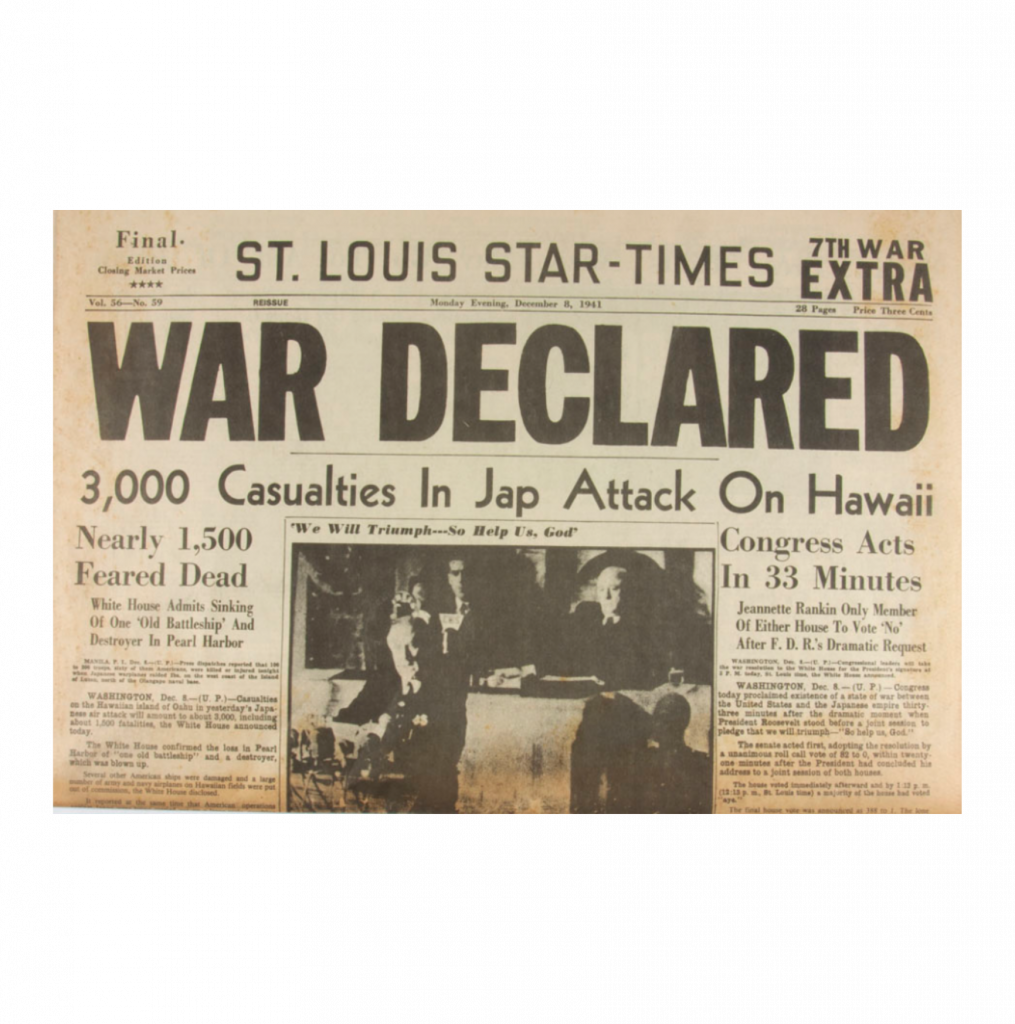
MMOT Collectable: St Louis Star-Times 8 December 1941

MMOT Collectable: LIFE Magazine Volume 11 Number 23
Shingun Soldier
Maker: Masudaya
Year of Make: c.1930s
Material: Celluloid
Country of Origin: Japan
Machine Gunner Soldier
Maker: Masudaya
Year of Make: c.1930s
Material: Lithographed Tin, Plastic and Rubber
Country of Origin: Japan
Machine Gunner Soldier (Japanese)
Maker: Masudaya
Year of Make: c.1930s
Material: Lithographed Tin, Plastic and Rubber
Country of Origin: Japan
Sikh Soldier
Maker: Masudaya
Year of Make: c.1930s
Material: Celluloid
Country of Origin: Japan
General MacArthur – Man of the Hour
Maker: Freundlich Nov. Corp.
Year of Make: c.1940s
Material: Fabric, Composition
Country of Origin: United States of America

MMOT Collectable: Shingun Soldier
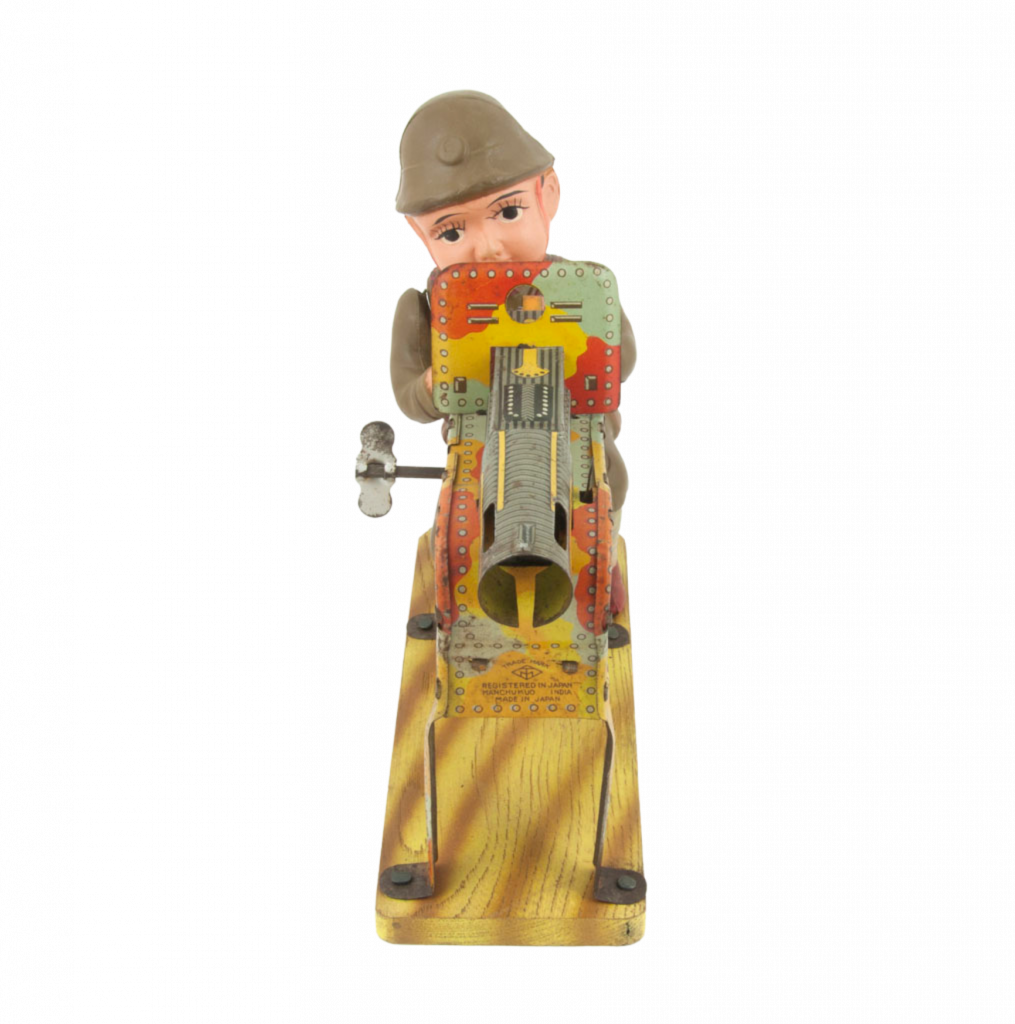
MMOT Collectable: Machine Gunner Soldier
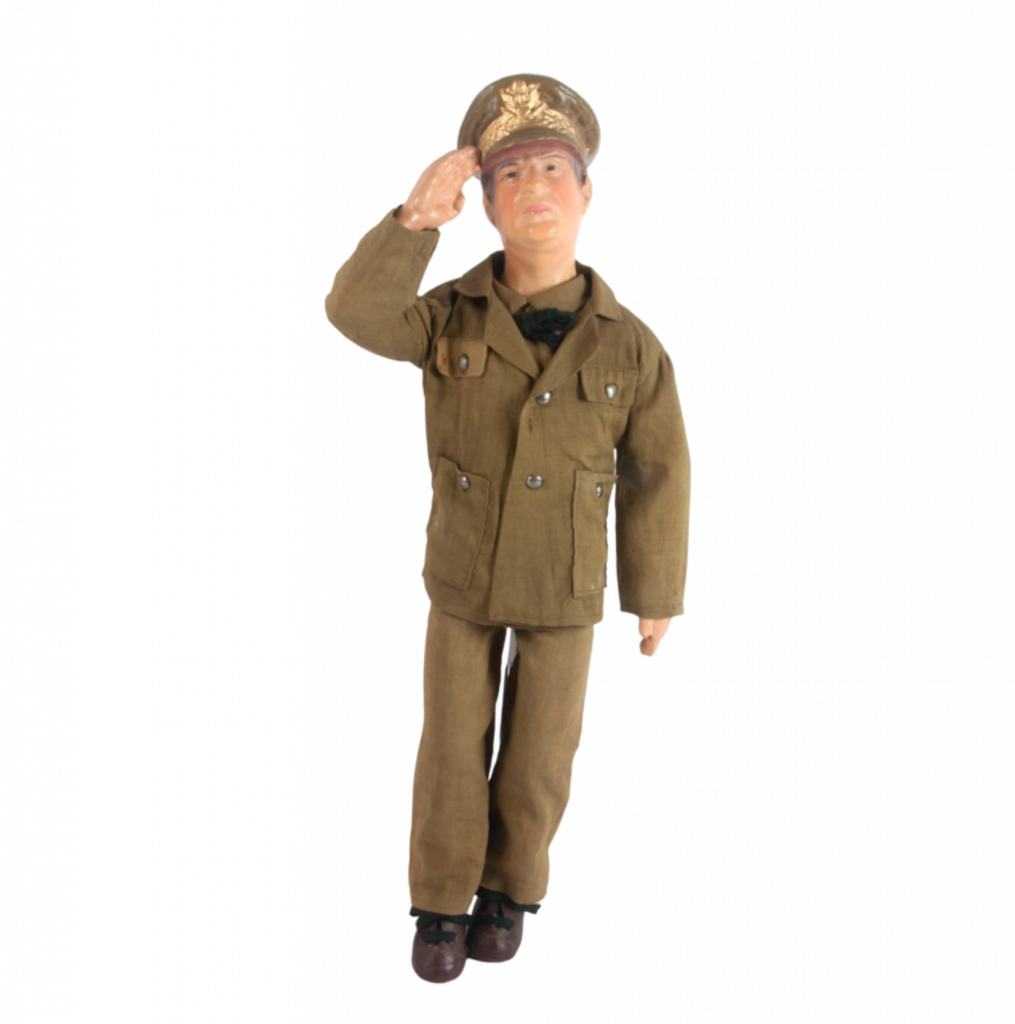
MMOT Collectable: General MacArthur - Man of the Hour
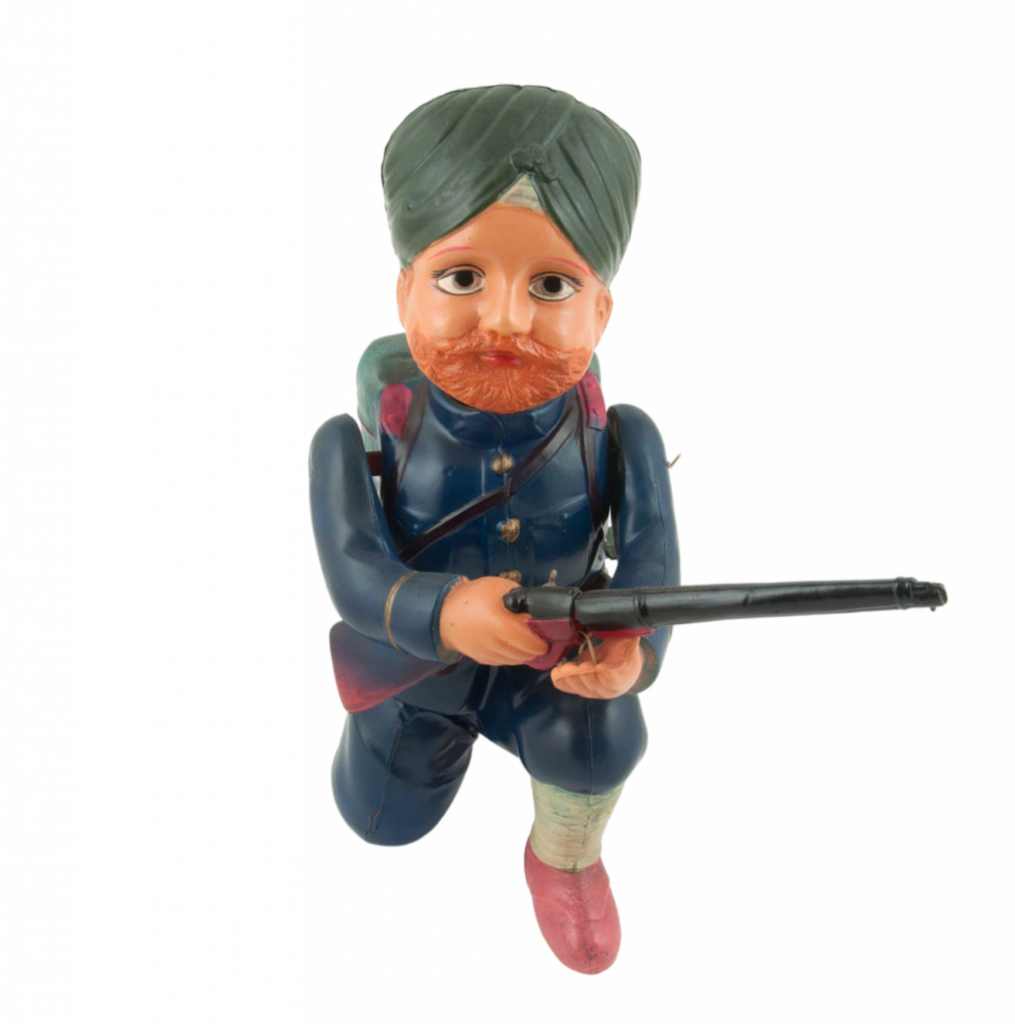
MMOT Collectable: Sikh Soldier
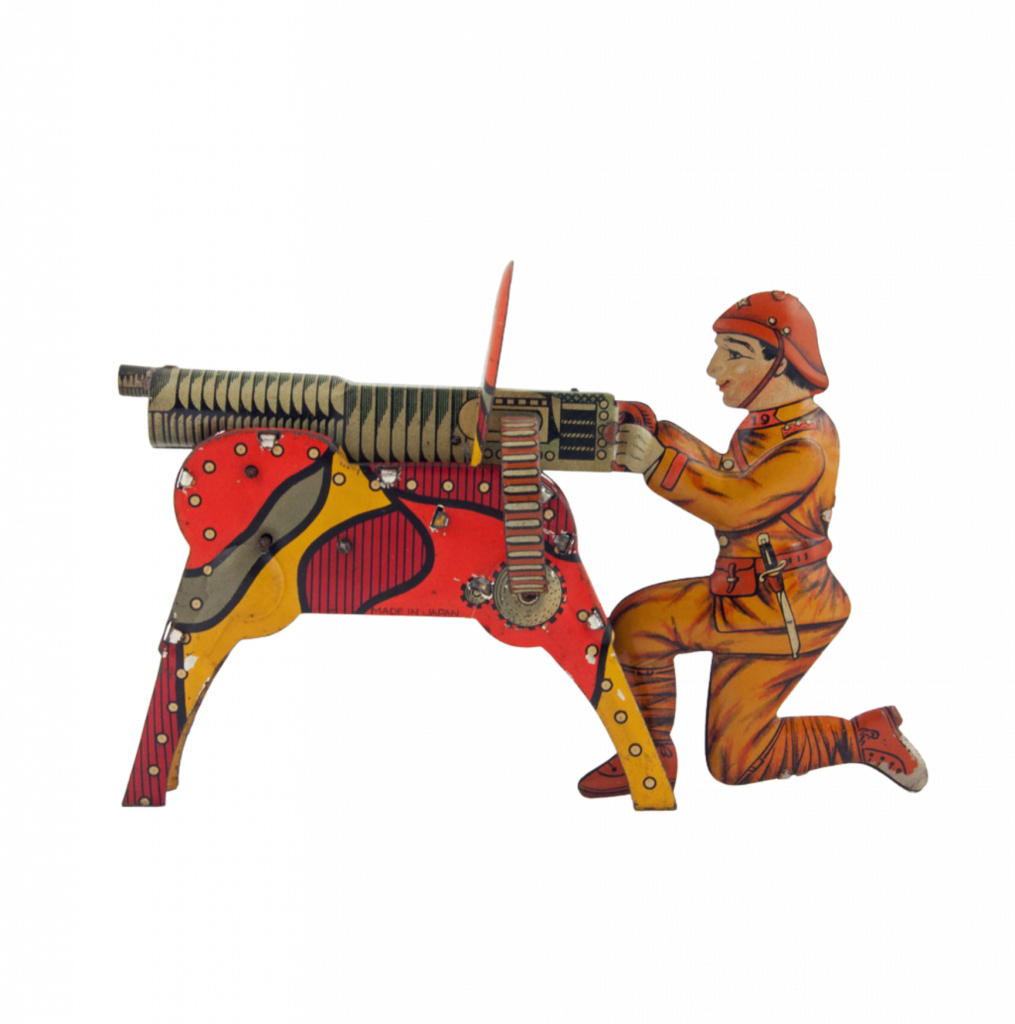
MMOT Collectable: Machine Gunner Soldier (Japanese)
Mitsubishi Zero Fighter
Maker: Daito
Year of Make: c.1960s
Material: Lithographed Tin, Plastic, Rubber
Country of Origin: Japan
Spitfire
Maker: Cragstan, H.T.C
Year of Make: c.1960s
Material: Celluloid, Paper, Plastic and Lithographed Tin
Country of Origin: Japan
Yamato
Maker: A.T
Year of Make: c.1950s
Material: Lithographed Tin
Country of Origin: Japan
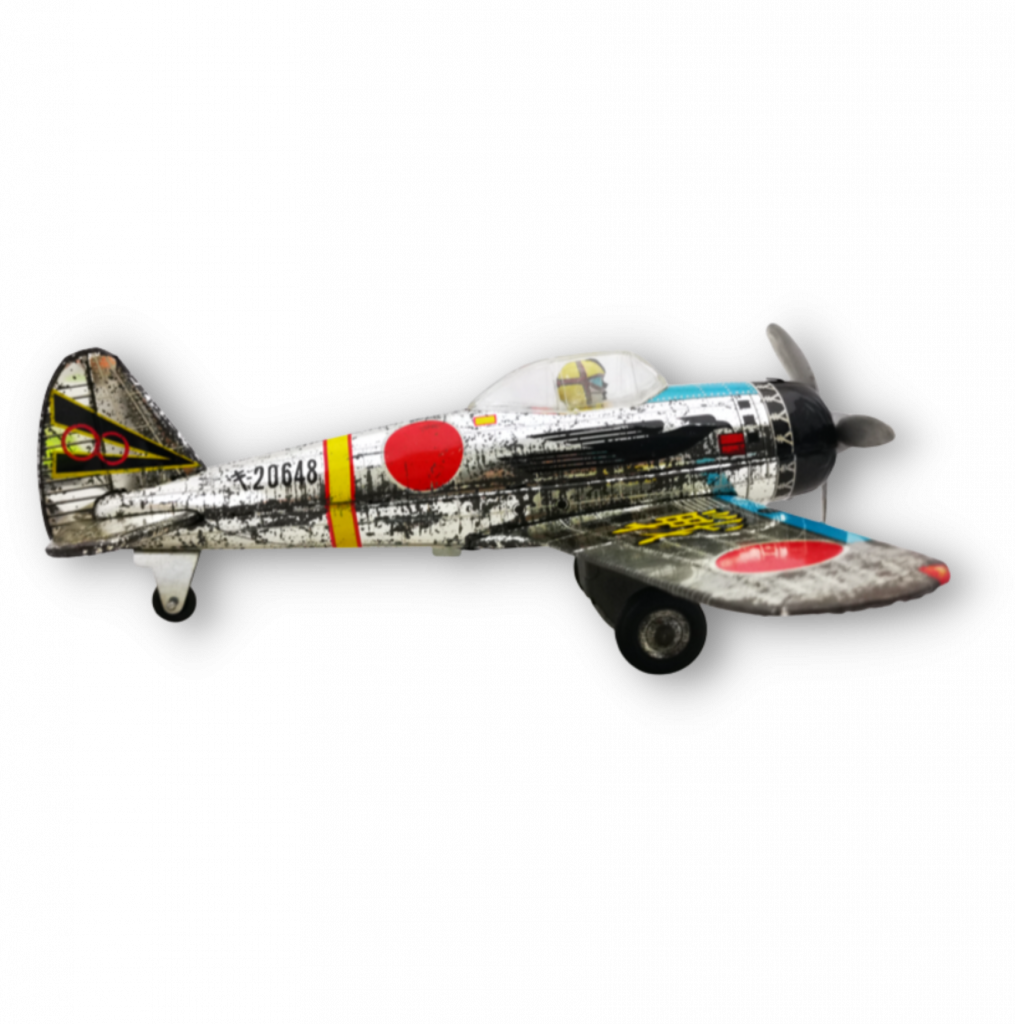
MMOT Collectable: Mitsubishi Zero Fighter

MMOT Collectable: Yamato
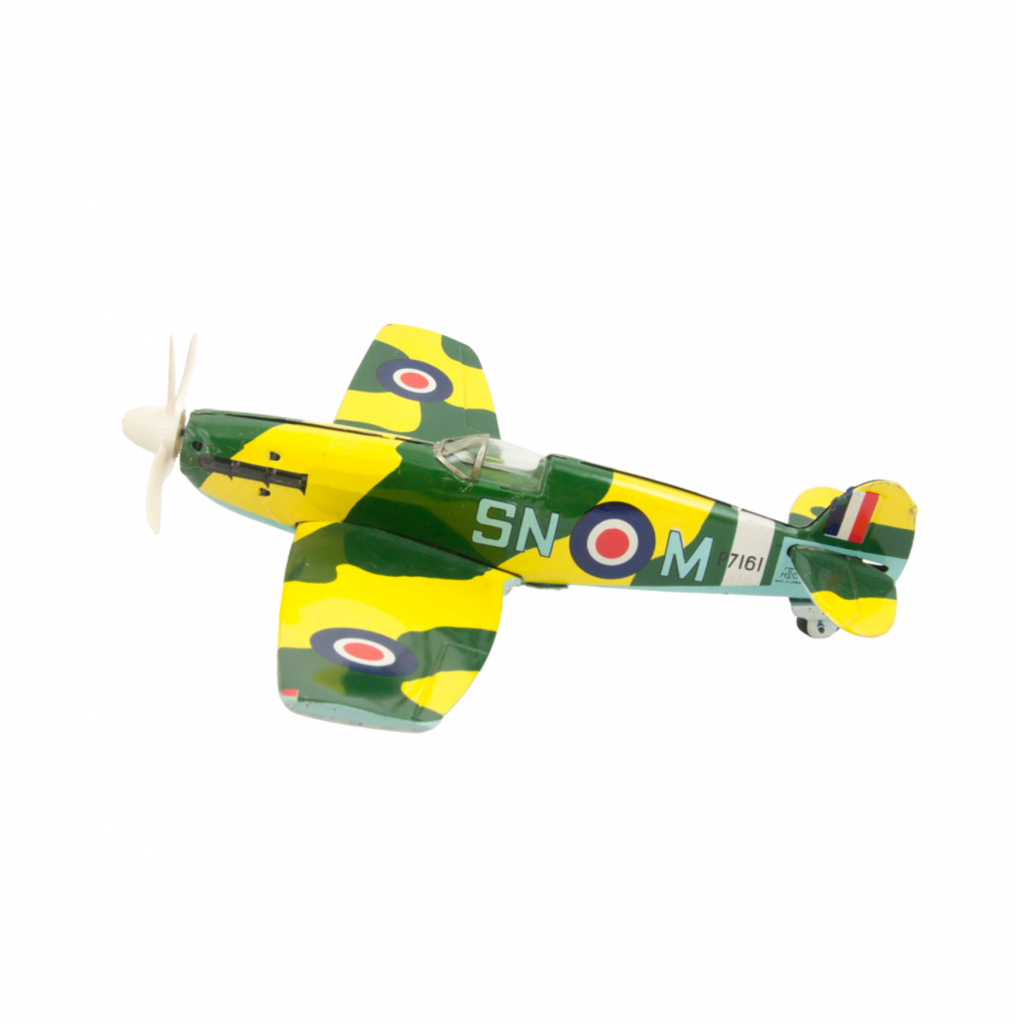
MMOT Collectable: Spitfire
The Leader’s Car
Maker: Tippco
Year of Make: c.1938 – 1945
Material: Rubber, Elastolin Composite and Lithographed Tin
Country of Origin: Germany
Hitler Pin Cushion
Maker: Bassons Dummy Products
Year of Make: c. 1941
Material: Plastic and Fabric
Country of Origin: United States of America
Mickey Mouse German Airplane
Maker: Tippco
Year of Make: c. 1940s
Material: Lithographed Tin
Country of Origin: Germany
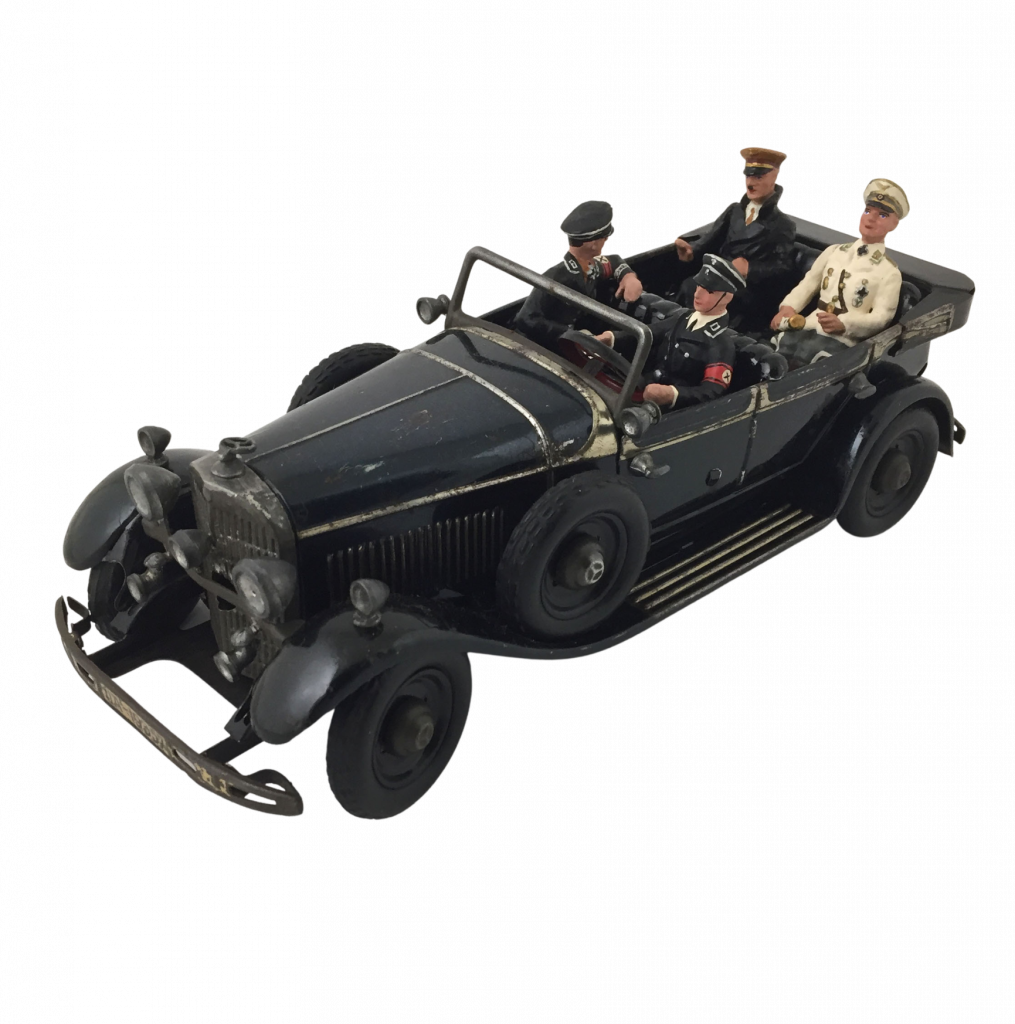
MMOT Collectable: The Leader's Car
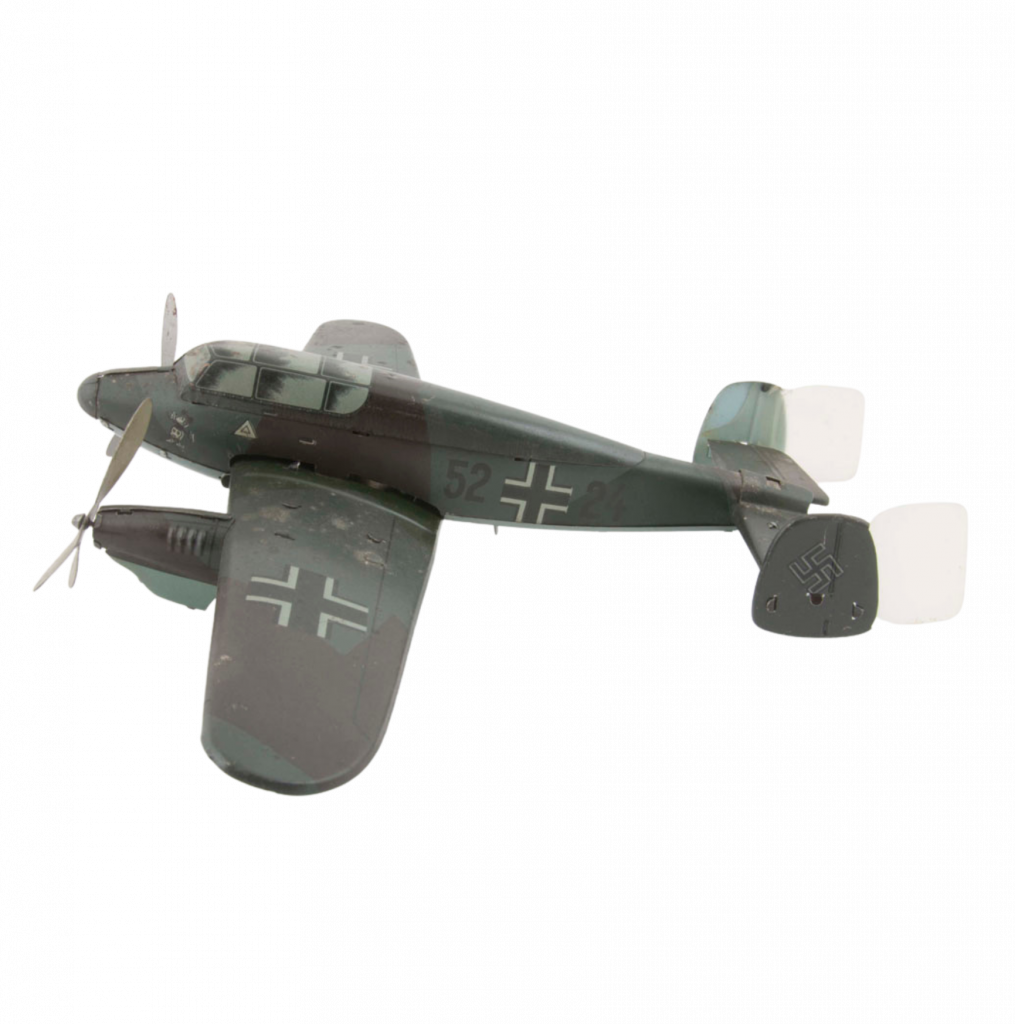
MMOT Collectable: Mickey Mouse German Airplane
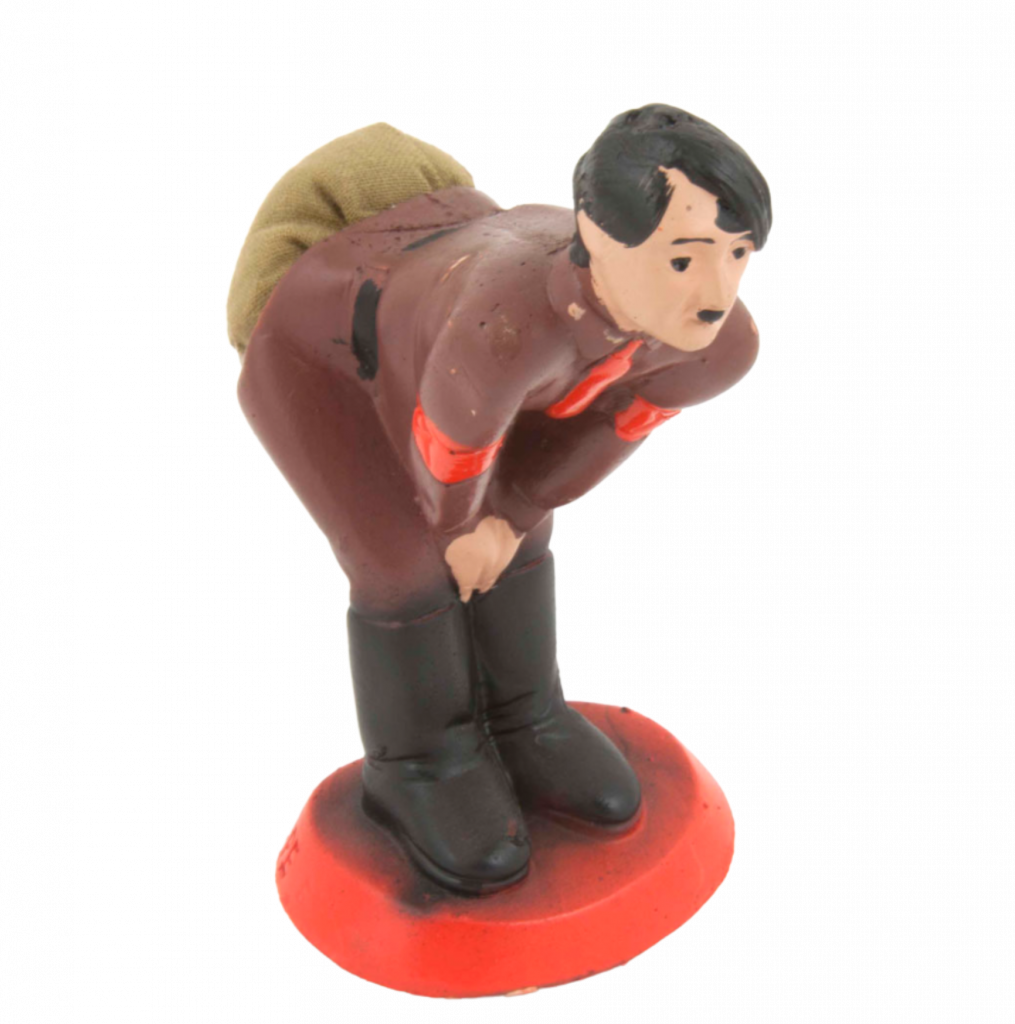
MMOT Collectable: Hitler Pin Cushion
how the
second world war began: europe, 1939
In Europe, World War II started in September 1939 with Hitler’s invasion of Poland. France and Britain declared war 2 days later and the Soviet Union (modern-day Russia) saw this as a chance to invade Poland from the east.
About the toy
This toy made by Tippco depicts the Mercedes-Benz 770 which is best known for its use by high-ranking Nazi and Axis politicians before and during World War II. This car is made from painted tinplate and fitted together using a slot and tab system. Its licence plate bears the number 11A-19357, which matches the parade car used by Hitler throughout the 1930s. Like many toys from the era, the figures have moveable right arms to perform the Nazi salute. Similar in concept to the MacArthur doll that could salute the American flag. Nazi-themed toys were often used as propaganda tools, leading children to grow up believing that war, death and prejudice were completely normal aspects of everyday life. This normalisation of war was also conveyed by American and British toys.
About the HISTORY
Adolf Hitler (1889–1945) was leader of the German Nazi Party, becoming chancellor of Germany in 1933, and leading his country into the Second World War in 1939. He committed suicide in April 1945 just before Germany surrendered. His second-in-command was Hermann Göring (1893–1946) who had been a fighter pilot in the First World War (1914–1918) before joining Hitler’s Nazi Party. After founding the Gestapo, Göring was appointed commander-in-chief of the Luftwaffe (the German air force), and in 1940 became Reichsmarschall, the highest rank in the German armed forces. He was found guilty of war crimes and crimes against humanity, but committed suicide before he could be executed.
About the toy
Toys that ridicule a country’s enemies. This American figurine features a likeness of Adolf Hitler, positioned with his hands between his knees and presenting his buttocks, which are covered in a tufted fabric for sticking pins. The label tied around Hitler’s ankle reads, “It is good luck to find a pin – here’s an “axis” to stick it in.” Made in c. 1941 when America entered the war.
About the HISTORY
The Hitler Pin Cushion provided a way for people to organise their pins while simultaneously supporting Allied efforts, as sales profits were donated to aid in the war. According to the toy’s catalogue, President Franklin Roosevelt had one displayed on his desk. As Nazi forces tore through Europe, the toy provided a comedic avenue for Americans to poke fun at Hitler back home; In times of war, frivolities like these went a long way in boosting collective morale.
About the toy
This toy is rare to find with the Mickey Mouse decal. There is a hook on the top so that the toy could be suspended from the ceiling. When activated, the propellers rotate, making the aeroplane fly around in circles in the air. The aeroplane is a twin-engine propeller bomber, painted in green, grey and brown camouflage. There are German ‘Balkenkreuz’ (Iron Cross) emblems on the wings.
The toy maker was Tippco – a Jewish-owned company originally founded in 1912. A Jewish man named Philip Ullman took over from the original founders after 1918 as sole owner. In 1933 Ullmann had to flee to the United Kingdom (UK) due to increasing Nazi persecution. Tippco was seized and became a propaganda arm of the Third Reich producing scale models of German military vehicles. Thankfully, Tippco returned to the Ullmann family’s control in 1948 after the end of WWII.
how the
second world war affected other parts of the world
battle of britain & The blitz,1940
About the toy
The toy is based on a British Spitfire fighter aeroplane. It is a single-engine propeller monoplane, with green and yellow camouflage markings, and a white propeller. There are RAF (Royal Air Forces) roundels on the fuselage and wings. When activated, the aeroplane drives forwards, with the propeller rotating.
About the history
Also known as the Supermarine Spitfire, this single seat fighter aircraft was used by the Royal Air Force and other Allied countries before, during and after the Second World War.
During the Battle of Britain (July – October 1940) which overlaps the period of night attacks known as the Blitz (September 1940 to May 1941) in which the RAF defended the UK against large scale attacks by Nazi Germany air forces, the Luftwaffe, the public perceived the Spitfire to be the main RAF fighter and since it was the first major military campaign fought entirely by air forces, the Spitfire was the only British fighter aircraft produced continously throughout the war.
The Spitfire remains popular with around 70 of them airworthy today with many more being static exhibits in museums around the world.
united states of america, 1941
About the HISTORY
The USA entered the World War in May 1941 when the Japanese bombed Pearl Harbour.
The attack was a surprise military strike by the Imperial Japanese Navy Air Service upon the United States, which resulted in 2,335 killed and another 1,143 wounded. It is speculated that the Americans knew about the attack but this has not been corroborated in a strategic move to gain control of the Pacific. After the attack on Pearl Harbor, the Japanese airfleet flew quickly towards the Philippines.
The Japanese destroyed the majority of General MacArthur’s fleet as he maintained his planes wingtip to wingtip on the tarmac.
The United States was a neutral country at the time; the attack led to its formal entry into World War II the next day.
british colonies of malaya, 1941
About the toy
Known as the Zero fighter, this toy is modelled on one of Japan’s most famous aircraft used during WWII. These Zero fighter planes were present at Pearl Harbor – 9 were shot down.
The plane could reach a maximum speed of 300 miles per hour and symbolises Japan’s advanced technology.
Fun fact: Production of this aircraft began in 1940 which signified 2600 years since Japan’s legendary first emperor Jimmu’s ascension to the throne. Its name comes from the last digit of ‘2600’.
About the history
In 1924, British Prime Minister Winston Churchill had written that there was “not the slightest chance of war with Japan” in his lifetime. He could not have been further from the truth. His attitude and that of the British forces resulted in calamitous consequences in the defence of Singapore. Although 60 million pounds had been spent between the two World Wars on fortifying Singapore, the planned number of fortifications was ultimately reduced.
Right after Pearl Harbor was attacked, Japanese warplanes sank the HMS Repulse and Prince of Wales off the east coast of Malaya. Led by Lieutenant General Tomoyuki Yamashita, troops from the 25th Army attacked the northern coast of Malaya at Kota Bharu and moved down the east coast. The Japanese 5th Division landed in Thailand, then moved into the west of Malaya.
The Malaya campaign was dominated by land battles between the Japanese Army and British Commonwealth troops, comprising British, Indian, Australian and Malayan forces. From the start, the Japanese had air and naval supremacy and soon, with their light tanks and bicycles, were able to move quickly over land.
The campaign was a complete disaster for the defence forces. By the end of January 1941, the remaining Allied army retreated across the causeway into Singapore, blowing up a hole in the bridge to slow down the Japanese.
The British had not considered that the Japanese would be able to cross the jungle terrain of Malaya easily. They had concentrated their efforts on defending Singapore, then the most important British military and economic colony, from their naval base in Sembawang.
Despite the damage to the causeway, the 30,000-strong Japanese forces advanced across the Straits of Johor at the north-west of Singapore and attacked the weakest parts of the British defences. They began advancing towards the city, where supplies were beginning to dwindle. General Yamashita demanded unconditional surrender, and British Lieutenant-General Arthur Percival, who had 85,000 Allied troops under him, conferred with his senior commanders and agreed.
The capture of Singapore remains the largest British surrender in its entire history, and Churchill himself has named it the worst disaster of the British military. Ultimately, Singapore’s fall and other defeats suffered by the British, badly dented their prestige and morale, contributing to the end of British colonial rule after the war.
battle of singapore, 1942
About the toy
This toy is based on a soldier firing a machine gun, there is a an internal wind-up mechanism with a permanent key on the right side and a on/off switch on the top. When activated the soldier’s right arm moves as if firing the machine gun and the end of the barrel sparks!
The soldier is seen to be wearing a 1930s military uniform including helmet and puttees.
In the early 1900s, the Japanese Imperial Empire was expanding and creating such toys in 1930s depicts Japanese colonial power.
About the history
Take a closer look at the front of the toy and you will see the text REGISTERED IN JAPAN MANCHUKO INDIA.
Manchukuo, also known as Manchuria, was a Chinese territory seized by the Japanese in 1931. It only returned to China after the end of the Second World War (1939–1945).
This toy allows us to consider the context of World War II that resulted in Japan’s formal entrance to the war in 1941.
About the toy
This toy is based on a Japanese soldier operating a machine gun. The toy has an intrenal crank-wind mechanism with a crank handle of the right side. When activated the machine gun’s barrel rotates and the toy makes a firing sound!
The soldier is seen wearing a Japanese military uniform.
About the history
The British Army initially believed that they would be unlikely to engage with the Japanese in armed battled on land. They considered the jungles of Malaya impassable and to hamper the progress of the Japanese, blew up more than a hundred bridges across Malaya.
In spite of this, the Japanese surprised the defence forces by advancing quickly in more than 200 light tanks and on bicycle.
Although the British army outnumbered the Japanese three to one, the Japanese were better equipped and were backed up by its superior air force.
About the toy
These Shingun Soldier toys were produced by Masudaya in the 1930s, and depict a kneeling soldier in army fatigues carrying a rifle and field pack. The toy is made from celluloid, and powered by a wind-up spring mechanism; when the key in the figure’s torso is wound, it continuously turns its head from left to right and raises the rifle up and down.
About the history
Many WWII-era Japanese toys manufactured for domestic consumption carried nationalist, imperialist messages, representing Japanese soldiers as heroes. However, some toy manufacturers, including Masudaya, also produced figures depicting soldiers of other ethnicities, probably from Allied forces; it is not clear whether these were made for domestic or overseas markets.
About the history
After the First Anglo-Sikh war (1845-46), the Sikh Empire fell and the British colonised the Sikh kingdom of Punjab. During WWI and WWII, the British relied heavily on the resources and people that the British had colonised. Indian Sikhs represented 60% of the British Indian army that fought against the Japanese invasion of Malaysia and Singapore. Horrific photographs of Sikh soldiers being used as shooting practice whilst blindfolded emerged in recent years and are dated from the Japanese occupation.
Reputed for their valour and courage, the deployment of Sikhs in the military created a global Sikh diaspora.
a hero of the war:
general macarthur
About the toy
This “General MacArthur – Man of the Hour” doll was produced by Freundlich Novelty Corporation in celebration of MacArthur’s high public standing as an American war hero.
The toy pays great attention to detail and features MacArthur in his signature military uniform, wearing his moulded hat with eagle insignia. Its right arm is permanently in the bent position of saluting the flag.
The maker of the toy – Freundlich Novelty Corporation was an American doll company founded by Ralph Freundlich in the early 1930s. The Corporation’s promotional material boasted that their factory in Clinton, Massachusetts was “the largest doll factory in the world”.
When he was found guilty of perjury in 1937 about the number of Kiki dolls he had made, Freundlich had to pay a hefty $4,000 fine and spend 3 months in prison. After a fire destroyed the factory in 1945, bankruptcy was filed and Freundlich died shortly after.
Wartime propaganda was not merely limited to satirising the enemy – it also glorified militarism and military heroes, and this phenomenon occurred in many nations that were involved in WWII.
This toy capitalises on the military aggressiveness of America at war as well as the popularity of MacArthur at the time.
About the history
General Macarthur was Chief of Staff of the United States Army during the 1930s, and he played a prominent role in the Pacific Theatre during World War II, including accepting the surrender of Japan in 1945.
He oversaw the occupation of Japan from 1945 to 1951, and as its de factor head, he made sweeping economic, political and social changes.
About the collectable
This is an original copy of the LIFE magazine Volume 11 Number 23 published on December 8, 1941 with American General MacArthur featured on the front cover, with a 13-page featured article on him.
The magazine was published the day after the Japanese attack on Pearl Harbor that brought the USA into the Second World War.
About the history
General MacArthur had originally retired in 1935 and set sail for the Philippines. Part of the article in the magazine mentioned that ‘nobody cared why’ he chose to leave America and it was a shock to the nation when President Roosevelt “dropped a bombshell in the Pacific by appointing Douglas MacArthur to be Commanding General of all US Armed Forces in the Far East”.
General MacArthur was both loved and despised by his fellow Americans. He was an iconic leader and a genius for his accomplishments during the wars with few resources however he was known to be not modest and was always quite the first to compliment himself. The same article stated that he ‘has always been too colourful and controversial a figure not to have acquired some enemies’ and his vanity sometimes created distrust amongst those who opposed.
Franklin Roosevelt once called him the “second most dangerous man in America after” Roosevelt’s populist rival Huey Long.
Around 10 years after this TIMES publication, in 1952, MacArthur retired officially from military service and after 52 years of military service, his parade had 7 million spectators.
the end of
second world war
About the toy
Made by A.T, the Yamato warship toy was likely inspired by the Imperial Japanese navy’s warship with the same name. The toy is a putt-putt boat where it can be powered by placing a lit candle in a metal holder at the rear. Toys like these were popular alternatives to wind up toys.
The toy was created in the 1950s, demonstrating the mythical national power of the warship.
About the history
The original Yamato warship was 72,000 tonnes with 9 x 46cm (18.1 in) type 94 guns which were the largest ever mounted on a warship. It was present during The Battle of Leyte Gulf (Oct 1944) against General MacArthur’s forces and it was the only time Yamato fired their guns.
The sinking of the Yamato on 7th April 1945 (South of Kyushu) – symbolised the end of the Japanese Empire.
On 2 Sep 1945, General MacArthur accepted the surrender of Japan, on board the USS Missouri in Tokyo Bay. This effectively signalled the end of the Second World War.
post war
other toys to look out for at the museum
After WWII, Japan was occupied by the United States between 1945–1952.
During this time, the US began the process of demilitarization and de-industrialisation in Japan. This was accomplished by abolishing Japan’s armed forces, shutting down its military industry, and forbidding the expression of patriotism in schools, public institutions, and in public. Permission was later granted to resume the making and export of toys, and the US helped to procure American steel to enable the manufacture of tinplate toys. This resulted in a post-war boom in toys and in popular culture in Japan.
See if you can spot these post war toys from the museum’s Outerspace toy collection after you have completed this guided tour!
civilian war memorial singapore
The Civilian War Memorial also known as the Memorial to the Civilian Victims of the Japanese Occupation is a war memorial and heritage landmark in Singapore located next to the Esplanade MRT station. It was built in memory of the civilians killed during the Japanese occupation of Singapore during World War II.
During the Japanese Empire’s occupation of Singapore, thousands of ethnic Chinese were killed in the Sook Ching Massacre. The death toll was reported to be 6,000 by the Japanese but official estimates range between 25,000 to 50,000.
Prime Minister Lee Kuan Yew set aside a plot of land for the building of this memorial dedicated to the civilians killed during the war. Its design was done by Leong Swee Lim of Swan and Maclaren Architects and is considered one of Leong’s most famous and significant contributions towards Singapore’s architecture. The four identical pillars each 70 metres high represent the shared experiences and unity of the four major races of Singapore – Chinese, Eurasian, Indian and Malay.
On 15 August 2023, the Civilian War Memorial was gazetted by the National Heritage Board as the 65th National Monument of Singapore.
The Memorial is an 8-to-10 minute walk from the MINT Museum of Toys, via Beach Road or North Bridge Road then Stamford Road.

